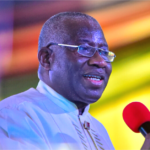By Dr. Charles Obiajulu Ugwu
Forget everything you think you know about power. The next century will not be won by those who claim authority, but by those who earn it every single day in the unforgiving marketplace of trust. Constitutions will be amended, borders redrawn, technologies obsolete but the question will remain the same: who deserves to be followed when the map burns?
This is not a story of failure. It is a manual of survival, a field report from the frontline of a world where governments wobble, corporations stumble, and yet life insists on being organized. Adaptive legitimacy is the name of this new grammar of power. Those who master it will shape the twenty-first century. Those who don’t will be spectators to their own irrelevance.
Read on, not as a distant observer, but as a participant in a drama already underway. What you will encounter is not simply Nigerian; it is the blueprint of the coming global order.
The Quiet Exhaustion of Authority
On a damp spring morning in 2019, the streets of Algiers filled with tens of thousands of citizens carrying little more than cardboard signs and an iron calm. The ruling party still held its constitutional mandate. The president, though visibly frail, had won every technical test of legality. And yet something more fundamental had already slipped away. Overnight, the government discovered that its power polished in law, armored by security no longer commanded the single resource that makes authority work: legitimacy.
No bullets were fired. No foreign army crossed a border. The crowd simply withdrew the silent permission that allows any institution to function. Within weeks the cabinet resigned, the president vanished from public view, and the country entered a fragile transition whose mechanics were not dictated by any statute but by the intangible force of public consent.
Versions of this drama are playing out across the planet. A social-media giant retains billions of users but sees its credibility shredded by a single data breach. A central bank meets every technical criterion of solvency while citizens quietly migrate their savings to crypto. A multilateral climate summit produces a treaty celebrated in press releases yet distrusted by the very nations that signed it. In each case the formal machinery of power remains intact, but the moral and psychological bond that sustains it has evaporated.
We call that bond legitimacy. The word is deceptively tame, like an item in a legal dictionary. In practice it behaves more like a volatile chemical: invisible until it combusts, essential until it’s gone. Legitimacy is the collective wager that a particular actor government, corporation, scientific body deserves the right to decide and to act on behalf of others. It is neither the same as popularity nor synonymous with legality. Dictators can be loved yet illegitimate; parliaments can be lawful yet hollow.
The twentieth century trained leaders to treat legitimacy as a certificate, a stock of political or moral credit earned through elections, charters, or market dominance. Secure the mandate once and you could draw on that account for decades. The operating assumption was durability. Constitutions were written for eternity, corporations scaled for perpetual growth, universities built reputations intended to last centuries. Trust, once achieved, was presumed to compound like interest.
The twenty-first century has made a mockery of that assumption. Digital contagion accelerates the half-life of public trust; a rumor can unwind a multinational balance sheet in an afternoon. Pandemics turn yesterday’s heroes into today’s scapegoats overnight. Geopolitical shocks expose how quickly allies, voters, or customers recalibrate their loyalties. Legitimacy now behaves less like a stock and more like a flow renewable but perishable, demanding constant generation. Institutions that fail to understand this new physics discover, often too late, that yesterday’s credentials cannot buy tomorrow’s consent.
Consider the numbers. In 2024 the Edelman Trust Barometer recorded the widest trust gap between publics and institutions since the survey began two decades ago. Confidence in national governments has fallen below fifty percent in most G20 nations. Corporate trust, once buoyed by technological optimism, now wavers under the weight of privacy scandals and exploitative labor models. Multilateral bodies from the World Health Organization to the United Nations struggle to maintain relevance as member states pursue unilateral advantage. The pattern is not ideological. Democracies, autocracies, left-leaning and market-driven economies all suffer the same erosion. The causes differ; the decay is universal.
Yet listen to how leaders respond. They tighten compliance protocols, hire new communications teams, or double down on legal authority. These are attempts to patch a leaking roof without examining the shifting foundations. Legitimacy is not a public-relations asset to be polished. It is an adaptive relationship between power and the governed, a living system that must be fed, monitored, and periodically renewed.
If we persist in treating legitimacy as a static possession, the consequences are not merely reputational. When legitimacy fails, coordination collapses. Pandemics spread not because pathogens are invincible but because citizens stop believing the instructions of their health ministries. Financial crises metastasize when depositors lose faith in regulators. Climate treaties falter when publics no longer accept that negotiators speak for them. Behind every material catastrophe lies a subtler political one: the breakdown of the invisible contract that allows collective action.
This essay begins from a blunt premise: the survival of our most vital institutions will depend less on the brilliance of their policies than on their ability to repeatedly earn the right to govern. Legitimacy, in other words, must be trained like a muscle. It requires deliberate exercise; rituals of accountability, mechanisms for self-correction, and an architecture that turns stress into strength.
In the pages that follow, I will argue for a new discipline I call adaptive legitimacy. The term is not a slogan. It describes the concrete capacity of an institution to regenerate trust under changing conditions. Adaptive legitimacy is not crisis management or mere transparency. It is a structural commitment to remain credible in a world where the expectations of citizens, customers, and ecosystems mutate faster than any five-year plan.
To build this case we will need to revisit the errors of the industrial age, when legitimacy was treated as a one-time endowment. We will examine the mechanics of decay; how narratives fray, incentives misalign, and feedback loops fail. And we will outline a blueprint for renewal, including practical instruments such as an Adaptive Legitimacy Index capable of measuring, and therefore managing, this elusive resource.
The argument is urgent but not despairing. Across the world there are glimmers of institutions experimenting with real-time sensing, responsive governance, and shared risk, three disciplines that form the backbone of adaptive legitimacy. Their stories reveal a hopeful truth: legitimacy can be designed, measured, and strengthened. The muscle is already there. It only needs to be trained.
What follows is not a moral lecture but a strategic proposition. In an era of overlapping crises, climate disruption, technological upheaval, demographic volatility the institutions that survive will not be the ones with the loudest mandates or the deepest pockets. They will be the ones that can deserve their authority again and again.
The crowd in Algiers did not topple a government with violence; it simply stopped believing. That quiet withdrawal of consent is the defining risk of our century. The remedy is not propaganda, nor stronger police, nor cleverer algorithms. It is the patient, disciplined work of building institutions that can withstand scrutiny, absorb dissent, and renew their claim to legitimacy in real time.
This, then, is the task before us: to treat legitimacy not as a relic to be protected, but as a living capacity to be cultivated. Only by training this muscle can we build a world where power not only exists, but deserves to endure.
The Static Fallacy
Legitimacy withers most rapidly where leaders imagine it to be permanent.
This is the Static Fallacy, the belief that a one-time grant of authority, whether by election, market share, or divine right, can be stretched across decades without continuous renewal.
The twentieth century industrial mind adored permanence: five-year plans, lifetime employment, fixed exchange rates.
We inherited the language of durability long after the environment that sustained it disappeared.
Consider the collapse of Lehman Brothers in 2008.
The bank was, on paper, fully licensed and legally sound until the day it imploded.
Its executives assumed that a century of brand equity and regulatory recognition guaranteed confidence.
But legitimacy, not legality, determines whether markets lend or panic.
The moment counterparties doubted the firm’s ability to honor its obligations, liquidity vanished in hours.
The legal entity existed; the social permission to function did not.
Or take Japan’s Fukushima disaster in 2011.
Tokyo Electric Power Company (TEPCO) held every necessary safety certification and regulatory approval.
Yet after the tsunami and reactor meltdown, the public discovered that years of cosy inspections and opaque reporting had eroded trust long before the waves arrived.
Citizens were not merely angry at the accident; they felt betrayed by the narrative of reliability that regulators and operators had allowed to ossify.
The technical license survived; the moral license collapsed.
Closer to politics, the Brexit referendum offers a democratic case study.
The United Kingdom’s institutions were never legally threatened.
Parliament still sat, the Crown remained.
But decades of slow-burn alienation from the European project created a reservoir of suspicion that no late-night fact-checking could drain.
The European Union lost British consent not because its treaties were unconstitutional, but because it treated legitimacy as a one-off achievement secured in the 1970s.
By the time Brussels realized it needed to re-earn British trust, the vote was gone.
These episodes reveal a common pattern: authority mistakes procedural continuity for existential security.
Licenses, charters, treaties are artefacts of yesterday’s consent.
They record the fact that an institution once deserved to act; they say nothing about whether it still does.
To treat them as guarantees is like assuming a decades-old friendship can survive without conversation.
The digital era magnifies this mistake.
Information travels at the speed of disbelief. A whistle-blower’s document, a smartphone video, or an algorithmic error can reach millions before any institution can draft a press release.
The half-life of trust now rivals that of a trending hashtag.
The Vatican’s centuries-old authority was not undone by theological disputation but by the instantaneous global spread of clerical abuse revelations.
Ride-sharing giants built multi-billion-dollar valuations only to watch public opinion swing within days when sexual-harassment allegations or safety lapses surfaced.
Even natural disasters expose the static fallacy. During Hurricane Katrina in 2005, the United States Federal Emergency Management Agency (FEMA) technically retained full legal authority to coordinate relief.
But television images of stranded families and contradictory briefings eroded public confidence faster than rescue operations could be mounted.
Citizens and local officials began improvising their own responses, bypassing the federal chain of command.
FEMA remained in charge on paper; on the ground, legitimacy had migrated elsewhere.
Why do intelligent leaders keep falling for the same trap?
Partly because metrics lag reality.
Poll numbers, stock prices, and compliance reports capture sentiment after it has already shifted.
By the time indicators flash red, the relational capital that sustains authority has quietly drained away.
Another reason is psychological.
Humans crave stability; we confuse the comfort of precedent with the security of consent.
Institutions, like individuals, prefer the reassurance of rituals to the discomfort of continuous renegotiation.
History offers a darker caution.
When legitimacy decays unnoticed, power often doubles down on coercion.
The late Soviet Union maintained an imposing legal apparatus and nuclear arsenal even as its citizens mocked official slogans.
Unable to generate fresh consent, the regime relied increasingly on surveillance and censorship, accelerating the very cynicism it sought to suppress.
The collapse of 1991 looked sudden; in truth it was the delayed recognition of a long-completed withdrawal of legitimacy.
Contrast these failures with moments of adaptive renewal.
When New Zealand’s government confronted the Christchurch mosque shootings in 2019, Prime Minister Jacinda Ardern avoided the static fallacy.
Rather than hiding behind existing mandates, she engaged citizens in real time, wearing their grief, altering gun laws within weeks, and sharing decision-making with Muslim leaders.
Legally she had no obligation to act so swiftly; politically she recognised that legitimacy was a flow that needed immediate replenishment.
Her approval ratings soared not because tragedy disappeared, but because the government demonstrated live competence and moral alignment.
Similarly, the Central Bank of Kenya earned international respect during the mobile-money revolution by repeatedly adjusting its regulatory stance.
Instead of freezing rules around early experiments like M-Pesa, it treated regulation as an evolving dialogue with innovators and citizens.
The result was a financial-inclusion success story that outperformed richer peers and enhanced the bank’s domestic credibility.
Legitimacy grew precisely because the institution refused to treat earlier authorisations as permanent.
These contrasts underscore the central insight of adaptive legitimacy: credibility must be produced as continuously as electricity.
An institution that cannot renew trust on demand will eventually be forced to trade legality for force, or relevance for nostalgia.
Neither is sustainable.
For leaders, this demands a shift as radical as the move from steam to electricity.
Instead of guarding a fixed endowment of authority, they must design systems that make earning legitimacy routine.
This is not mere transparency of posting documents online or holding annual consultations.
It is the creation of feedback architectures that expose decision-makers to dissent before crises erupt, and of risk-sharing mechanisms that align leadership incentives with public outcomes.
The next section turns from diagnosis to design.
If legitimacy is indeed a renewable flow, how can it be measured and strengthened?
What concrete disciplines allow institutions to convert shocks into credibility rather than decay?
To answer these questions, we need to unpack the mechanics of adaptive legitimacy itself, the muscles that can be trained.
Adaptive Legitimacy in Nigeria: Lessons from a Country in Perpetual Rehearsal
Nigeria is an x-ray of adaptive legitimacy’s paradox. It is a country where institutions routinely collapse yet life persists, a society that finds improvisation not merely as survival but as a governing principle. To grasp adaptive legitimacy here is to examine how formal authority decays while informal networks markets, kinship alliances, religious movements, digital youth collectives step in to fill the vacuum, often with a legitimacy that outpaces government decrees.
Take the #EndSARS movement of 2020. What began as a spontaneous protest against police brutality became a national referendum on governance itself. There were no official leaders, no party sponsors, no licensed “stakeholder.” Yet young Nigerians crowdfunded medical aid, organized food supply chains, and maintained order with a discipline that mocked the state’s chaos. Even after the government froze bank accounts, cryptocurrency wallets became financial arteries. Here legitimacy did not flow from a constitutional clause; it flowed from competence, solidarity, and the moral clarity of lived experience. Citizens withdrew recognition from the state’s monopoly on order and invested it in a distributed civic network. Adaptive legitimacy in this case meant that authority migrated to whoever could deliver coordination and care when the state could not.
Consider the paradox of Nollywood, Africa’s second-largest film industry. Born in the 1990s amid economic decline and infrastructural rot, Nollywood emerged not through government subsidy or regulatory blessing but through the raw appetite of millions of Nigerians for stories that mirrored their lives. Producers shot entire films in days using handheld cameras and pirated software. Distribution ran through chaotic open markets where pirates doubled as marketers. By conventional economic logic, this was an illegitimate industry unlicensed, underregulated, technically subpar. Yet its cultural legitimacy was overwhelming: audiences rewarded its immediacy, and over time Nollywood became a multibillion-dollar export, forcing banks, investors, and government agencies to belatedly recognize what the streets had already ratified. Here adaptive legitimacy meant moving first and letting formal recognition arrive late, if at all.
Politics offers a darker illustration. Nigeria’s informal “godfather” networks as patrons who finance campaigns and broker electoral deals, command a legitimacy that official party structures often lack. Voters know that the real negotiations happen in the shadows of hotel suites, not the open floor of legislative chambers. While corrosive, these networks survive because they provide predictability in an otherwise volatile electoral marketplace. Citizens, weary of state incompetence, often accept these arrangements as the price of stability. This is adaptive legitimacy’s double edge: the same flexibility that empowers citizens to build Nollywood or #EndSARS can also entrench shadow oligarchies when formal institutions falter.
The country’s religious landscape underscores the same pattern. Pentecostal megachurches like Winners’ Chapel or Redeemed Christian Church of God draw millions every Sunday, commanding loyalty that rivals the nation-state. Their leaders mobilize resources for education, healthcare, and disaster relief far faster than government agencies. When floods displace thousands, it is often churches and mosques not ministries that provide immediate shelter and food. In these moments, legitimacy is earned not by electoral mandate but by capacity to act. The faithful donate because these institutions deliver, and the state is tolerated because it cannot be entirely ignored.
Nigeria’s tech sector the Lagos’s “Yabacon Valley” reveals a more hopeful dimension. Start-ups such as Flutterwave, Paystack, and Andela flourished despite chronic power outages, erratic regulation, and opaque taxation. Entrepreneurs adapted by leveraging diaspora networks, building payment systems in parallel to dysfunctional banking, and courting foreign investors who were willing to bet on hustle over infrastructure. Their success forced the Central Bank and policy makers to rethink outdated frameworks. Here adaptive legitimacy was not merely survival; it became a strategic offensive. Innovators acted as if the future were already theirs, compelling the state to follow rather than lead.
To see the Nigerian pattern clearly, one must resist the temptation to romanticize resilience. The capacity to adapt does not absolve the state of failure; it reveals the vacuum. Informal legitimacy is not always emancipatory. The same adaptive networks that enable digital entrepreneurs to bypass red tape also allow oil bunkering cartels to thrive in the Niger Delta, draining billions in revenue and poisoning ecosystems. Militants provide jobs and protection where government neglect is chronic, winning local loyalty while undermining national stability. Adaptive legitimacy, in other words, is a neutral force: it can produce regenerative creativity or predatory capture, depending on the ethical architecture of those who wield it.
Across Africa, similar stories unfold with different accents. In Kenya, the mobile money platform M-Pesa achieved financial inclusion where banks failed, reshaping national payment systems before regulators caught up. In South Africa, neighborhood “stokvels” (rotating savings groups) continue to finance small businesses and school fees despite decades of formal banking expansion. Ghana’s “chop bar” economy informal food markets with their own credit mechanisms feeds cities more reliably than municipal planning. Each case shows that legitimacy flows toward systems that solve real problems faster than official channels can authorize.
Yet Nigeria stands apart for the sheer audacity of its improvisation. With over 200 million people, 500 languages, and a history of civil war and military coups, it is less a nation-state than a perpetual negotiation. The social contract is not a signed document; it is an ongoing hustle where every actor citizen, entrepreneur, pastor, politician tests the boundaries of power daily. Formal institutions exist, but their authority is contingent, continuously earned or lost in the marketplace of daily survival.
What lessons does this offer for leaders and thinkers grappling with adaptive legitimacy elsewhere? First, that legitimacy is fundamentally performative. It is not declared; it is enacted in the delivery of security, opportunity, and meaning. Second, that vacuum invites innovation. When formal systems fail, alternative networks ethical or corrupt will arise to meet unmet needs. Third, that adaptation alone is not enough. Societies must also cultivate normative anchors: shared values, credible accountability, moral imagination. Without these, adaptation slides into opportunism.
Nigeria’s future hinges on whether its adaptive genius can be channeled toward regenerative systems rather than endless patchwork. The task is to convert informal legitimacy into formal reforms without extinguishing the creative energy that produced it. That requires leaders who understand that authority is not a throne but a moving target, a relationship constantly renegotiated between institutions and the people they claim to serve.
Adaptive legitimacy, then, is not a Nigerian anomaly but a universal pattern only more vividly dramatized on Nigerian soil. In a world where crises multiply faster than bureaucracies can respond, the country offers a living laboratory for the politics of emergence. Its failures are warnings, its improvisations a manual, its resilience a dare: adapt, or be made irrelevant by those who will.
About the Author
Dr Charles Obiajulu Ugwu writes from Lagos
Follow us on all social media platforms @dailyquery for news and analyses around the globe.



























